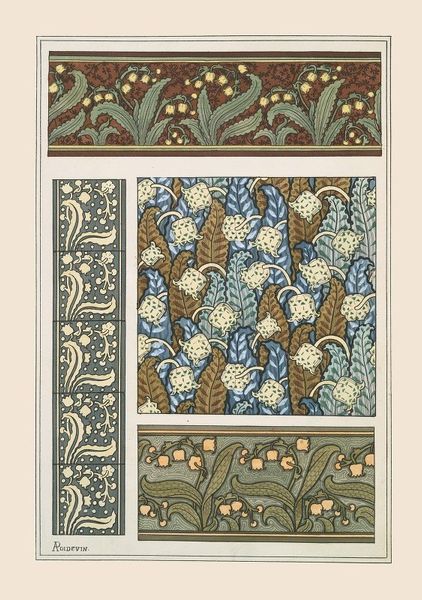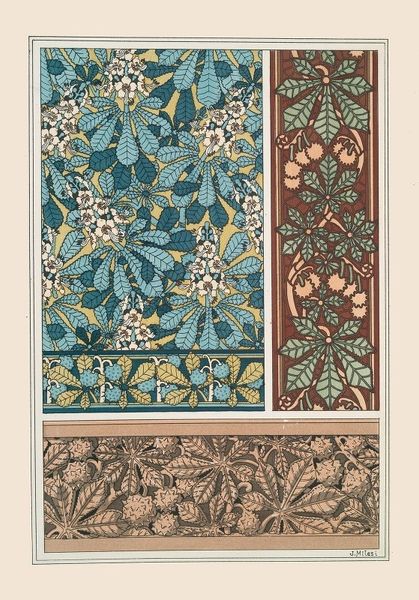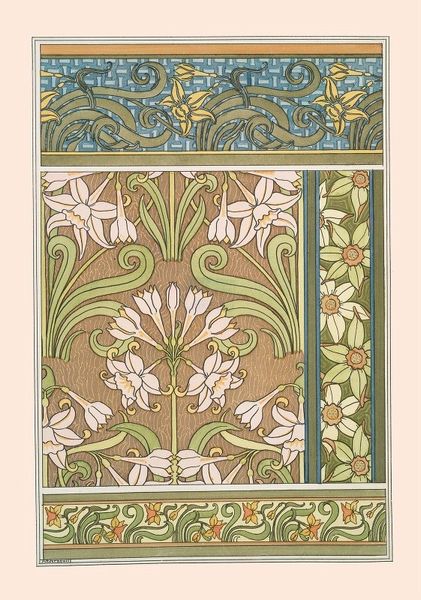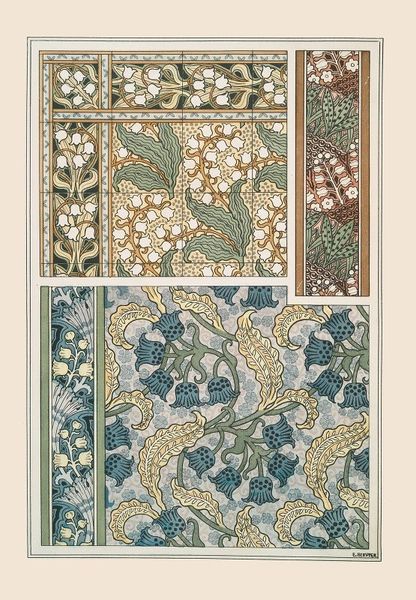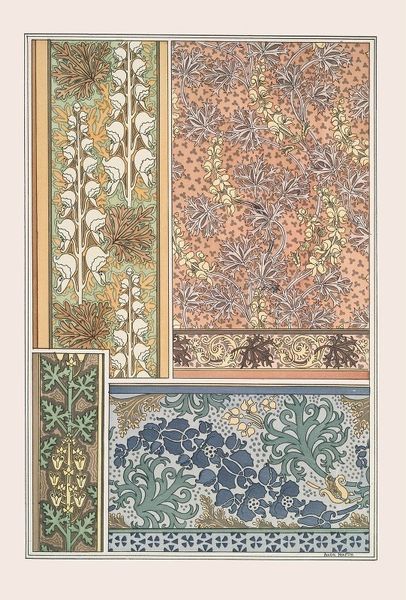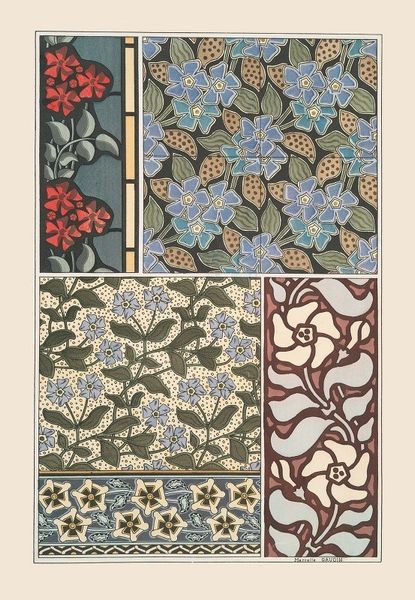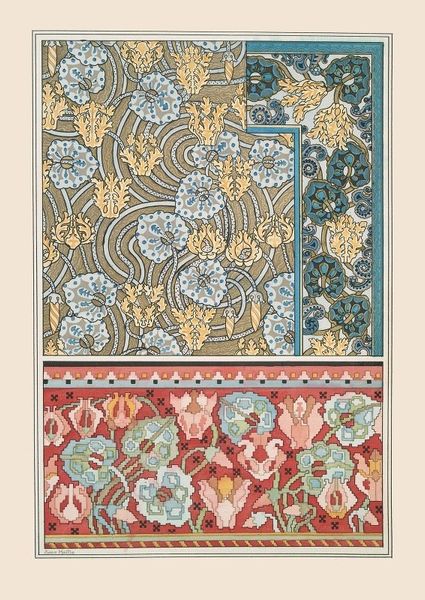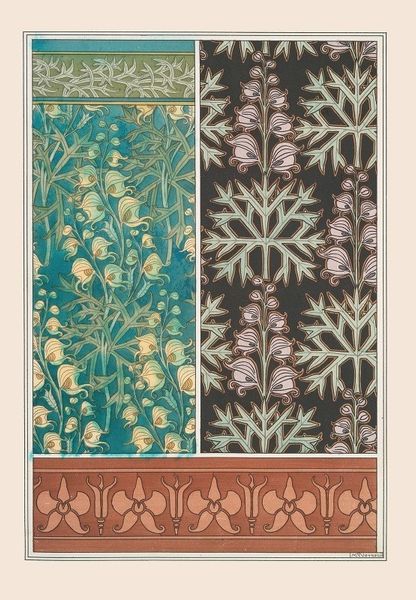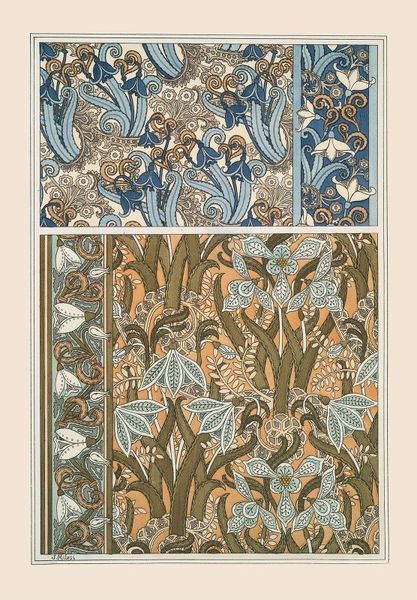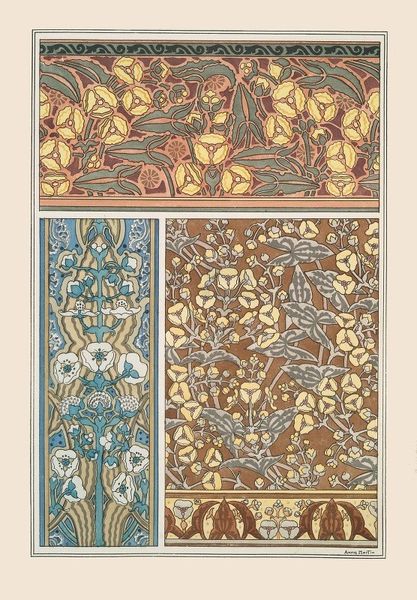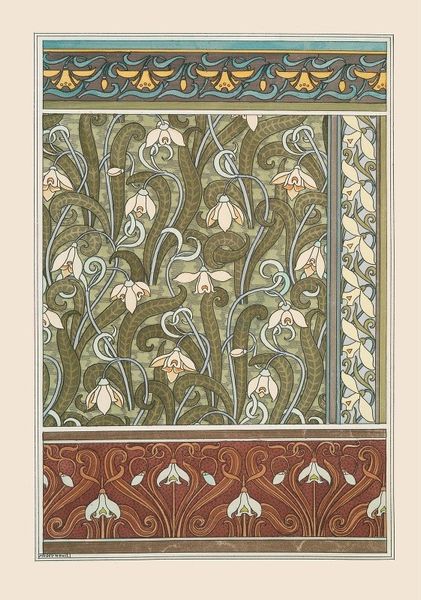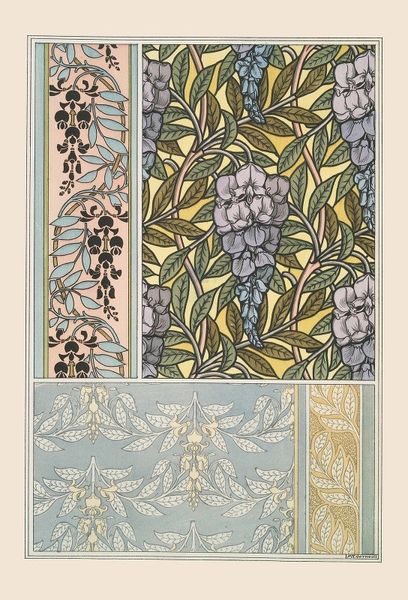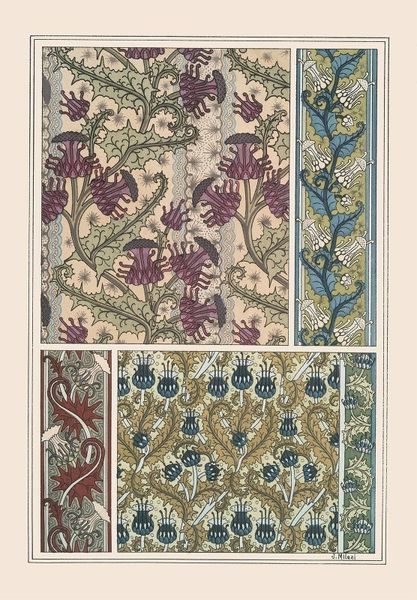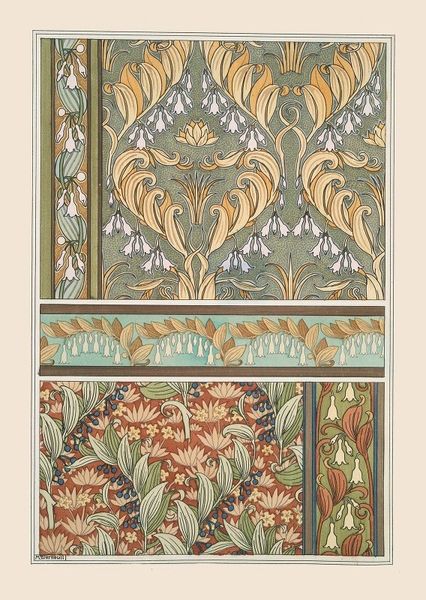
drawing, textile
#
drawing
#
naturalistic pattern
#
organic
#
art-nouveau
#
textile
#
pattern background
#
pattern design
#
ethnic pattern
#
organic pattern
#
repetition of pattern
#
vertical pattern
#
pattern repetition
#
textile design
#
decorative-art
#
layered pattern
Copyright: Public Domain: Artvee
Maurice Pillard Verneuil created "Jonquille 4", with what appears to be watercolor or gouache. The rhythmic composition is immediately striking, offering a study in stylized natural forms and decorative repetition. The palette is restrained, featuring muted blues, greens, and earth tones, which combine to create a soothing yet engaging visual experience. Verneuil's approach here seems deeply rooted in the Art Nouveau ethos. The sinuous lines and organic shapes, especially in the depiction of the jonquilles, evoke a sense of growth and vitality. Each section of the work operates as a distinct field of pattern, yet they cohesively contribute to the overall design. The stylized flowers and swirling tendrils are not mere representations; they are signs within a semiotic system, embodying the era's fascination with nature as both a source of beauty and a model for design. Consider, for instance, the way Verneuil uses the grid, a structure he then undermines with the fluid, asymmetrical forms of the jonquilles. This tension between order and freedom epitomizes Art Nouveau's broader cultural project: to reconcile the burgeoning industrial age with a yearning for organic, handcrafted aesthetics. In this work, the jonquille becomes more than just a flower; it is a symbol of a transformative moment in art history, a testament to the enduring power of nature to inspire artistic innovation.
Comments
No comments
Be the first to comment and join the conversation on the ultimate creative platform.
